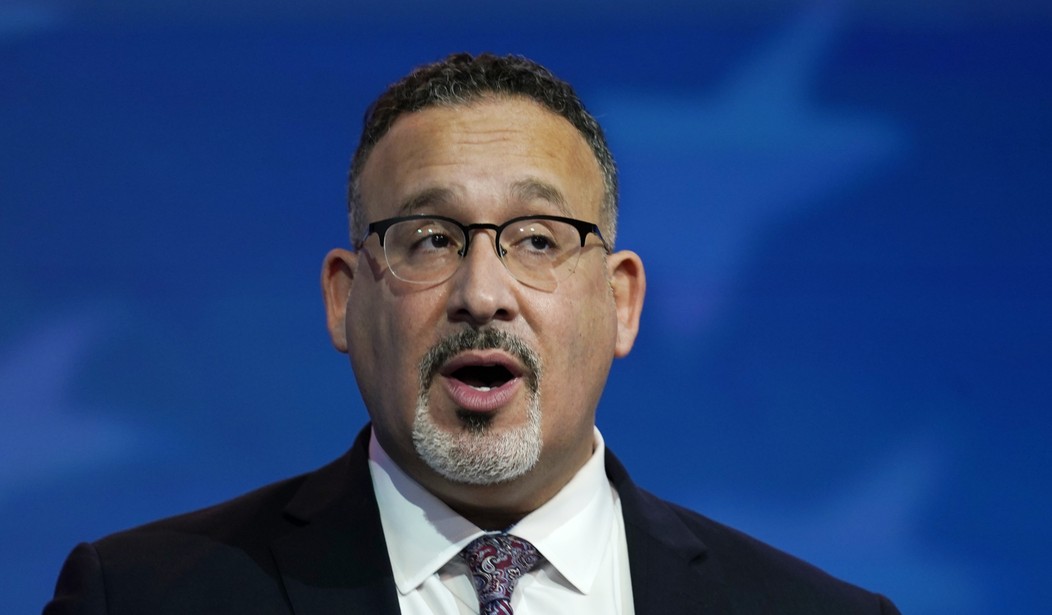Even though President Joe Biden's unfair and burdensome plan to erase student loan balances — by forcing the rest of America to pay them off — has faced significant headwinds from legal challenges, it looks like his administration is still working to make it easier for indebted borrowers to avoid paying back the money loaned to them by the Department of Education.
Three House Republicans — Oversight Committee Chairman James Comer (R-KY), Education and Workforce Committee Chairwoman Virginia Foxx (R-NC), and Government Operations and Federal Workforce Subcommittee Chairman Pete Sessions (R-TX) — are blowing the whistle on an "unannounced" change being made by Education Secretary Miguel Cardona to federal student loan repayment plans.
Evidently, according to these GOP lawmakers, the Biden Department of Education has waived the requirement that borrowers using income-based repayment plans — that is, borrowers with massive student loan balances can reduce their monthly payment amount if they don't earn enough to make the standard payment — verify how much money they make.
In a letter sent to Cardona on Friday, the House Republicans explain their "grave concerns about the Department's unannounced decision to relax the income verification requirements for federal student loan borrowers who enroll in income-drive repayment (IDR) plans."
Citing documentation from the Office of Federal Student Aid, the letter explains how the Biden Department of Education "has determined that, because of the COVID-19 pandemic and the subsequent pause in student loan repayments, a student loan borrower enrolling in IDR will not be required to provide the necessary tax documentation to verify the income on which a borrower's monthly payments are calculated."
Recommended
The federal government's COVID emergencies expired this week, but apparently the Biden administration thinks it can still lean on the pandemic to justify its evisceration of standard practices:
Normally, borrowers must provide their tax return information to enroll in an IDR plan and must recertify that information each year. However, the Biden Administration is allowing student loan borrowers to self-certify their income. The Oversight Committee has held two hearings about COVID-19 relief programs, including programs that relied on self-certification, and has heard testimony that self-certification contributed to improper payments and fraud.
The Republican lawmakers also remind Cardona that, "in light of the Oversight Committee's observations about self-certification in multiple COVID-19 pandemic relief programs, we are concerned about the extent to which the Department is leaving taxpayers vulnerable to waste, fraud, and abuse."
Unsurprisingly, as the letter points out, the Comptroller general has admitted seeing IDR plans that "didn't verify incomes, and a lot of people who reported zero income really didn't have zero income."
"Given the correlation between self-certification and fraud, we request a staff-level briefing no later than May 19, 2023, about the following points: (1) the Department’s specific legal authority to waive income verification requirements; (2) a detailed explanation of when and why the decision to relax income verification was made; and (3) the Department’s internal controls and procedures used to prevent fraud in student loan repayments," the Republican leaders conclude.

























Join the conversation as a VIP Member